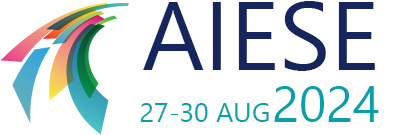KEYNOTE SPEAKER
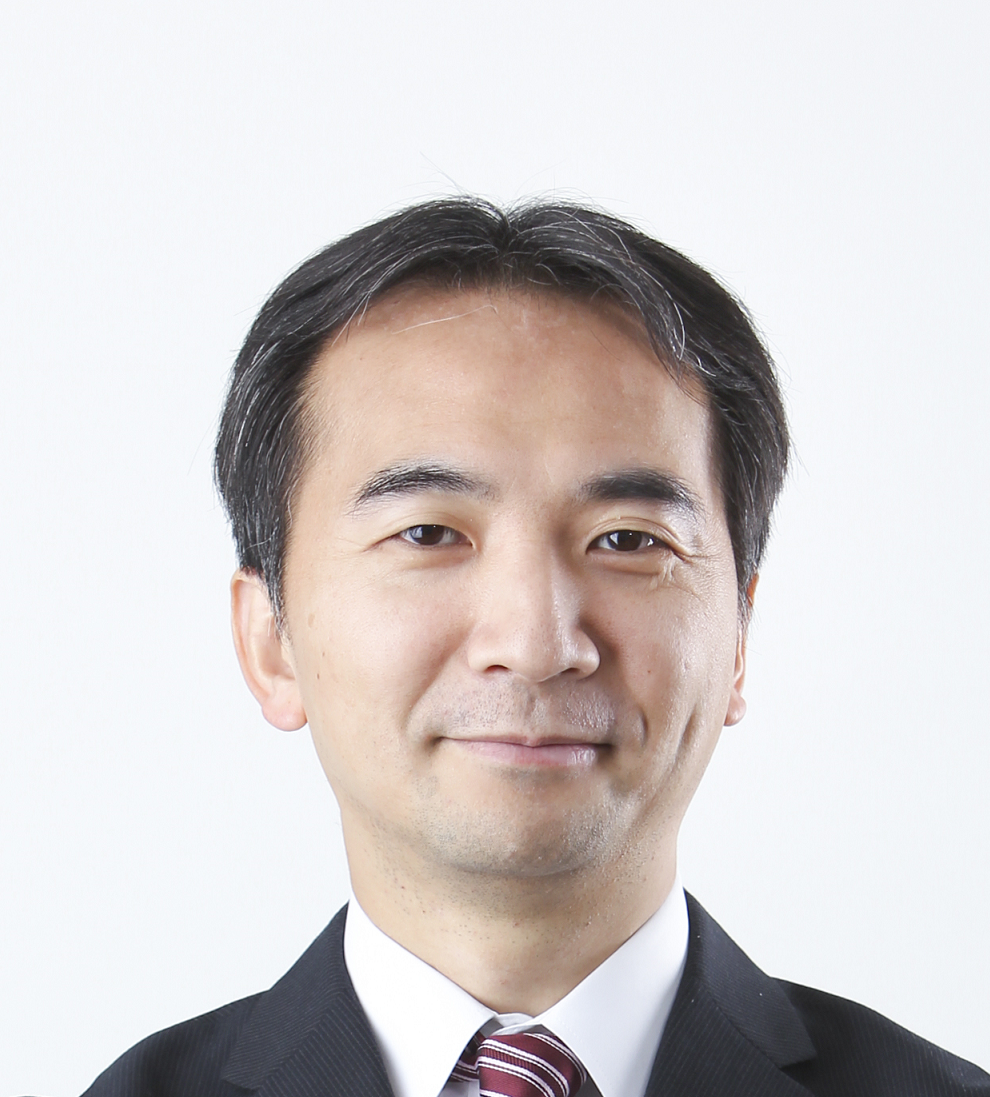
Prof. Hironori Washizaki
IEEE Computer Society 2025 President
Waseda University, Professor and Associate Dean of Research Promotion Division
National Institute of Informatics, Visiting Professor
eXmotion, Outside Director. University of Human Environments, Advisor
Title: Machine Learning Software Engineering based on Multi-view Modeling with Patterns and MLOps
Abstract: Prof.-Dr. Hironori Washizaki has led the evolution project of the IEEE Computer Society’s Guide to the Software Engineering Body of Knowledge (SWEBOK Guide). This talk first provides an overview of the SWEBOK Guide and its latest updates, including a new topic, AI and Software Engineering (SE). Then, as a part of AIeSE2024, the talk presents machine learning (ML) software engineering, with a particular focus on a multi-view modeling framework for ML systems with ML design patterns and ML pipeline integration to address the probabilistic nature of ML and its experimentative development approach. The framework provides an integrated platform between the modeling environment with ML patterns and ML training, performance monitoring, repair pipelines, and security risk management.
Short CV: Prof.-Dr. Hironori Washizaki is a Professor and the Associate Dean of the Research Promotion Division at Waseda University in Tokyo and a Visiting Professor at the National Institute of Informatics. He also works as an Outside Director of eXmotion. He currently serves as IEEE Computer Society President-Elect and has been elected IEEE Computer Society 2025 President. He has led software engineering research and ICT professional and educational activities, including developing the IEEE-CS’s Guide to the Software Engineering Body of Knowledge (SWEBOK Guide). He has led many academia-industry joint research and large-funded projects in software design, reuse, traceability, quality assurance, and machine learning engineering. Recent achievements include IoT design patterns and machine learning design patterns. He leads a professional IoT/AI/DX education project called SmartSE. http://www.washi.cs.waseda.ac.jp/
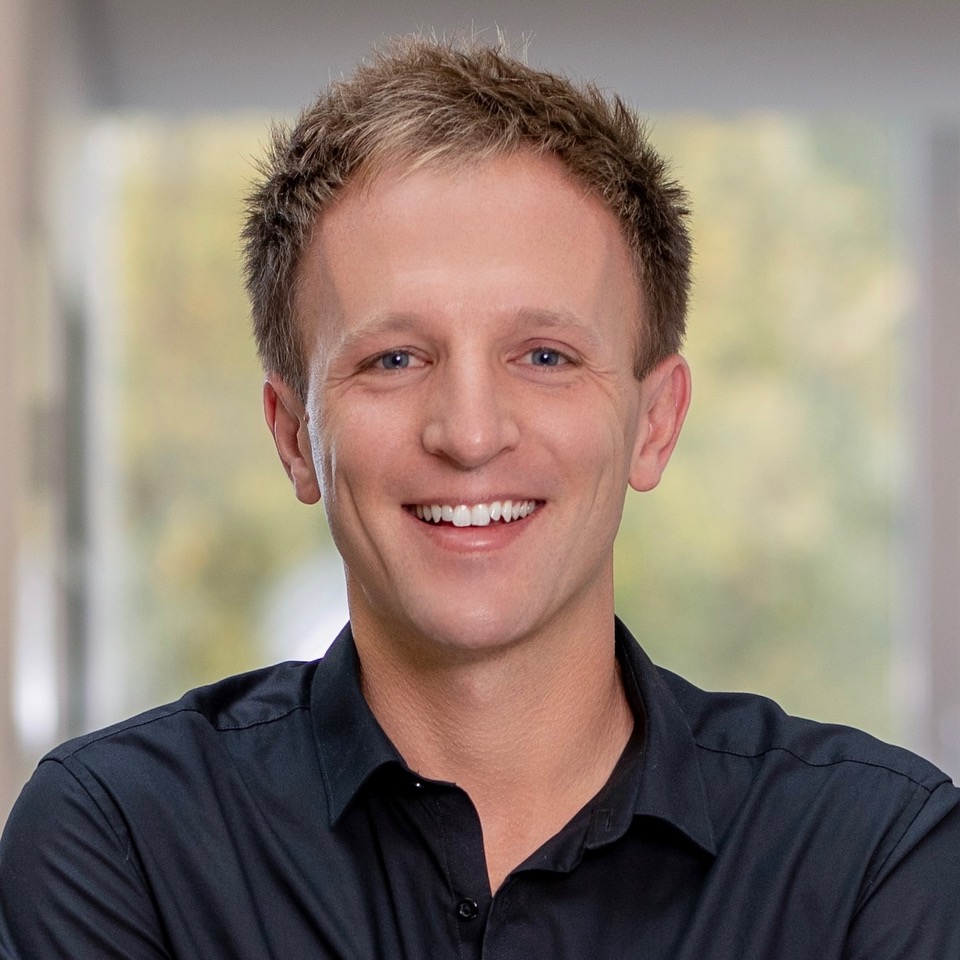
Prof. Stephan Krusche
Applied Software Engineering
Technical University of Munich
Title: Artemis: Interactive Learning with Generative AI
Abstract: In large university courses, students face challenges in mastering programming skills, which underlines the need for effective pedagogical support. The Artemis learning platform has been providing interactive learning through automated, individual feedback since 2016. It also offers fully personalized support with detailed explanations based on generative AI. The general availability of large language models enabled the creation of IRIS, a virtual assistant designed to offer context-sensitive support. Deployed as part of Artemis, IRIS is accessible to thousands of students. This presentation highlights the challenges of developing AI assistance in education and motivates ongoing research focused on analyzing student behavior and evaluating the impact on their learning experience.
Short CV: Stephan Krusche inspires students in computer science. He conducts research at the intersection of educational technologies, software engineering, and human computer interaction, and explores robotics and machine learning. Stephan developed the open-source learning and research platform Artemis, which is used in many courses at different universities to enhance the learning experience. With the help of automation and artificial intelligence, it reduces the workload for lecturers and creates free space for personal interactions.
In his dissertation, Stephan developed the process model Rugby, which improves quality in software development and teaching. He established the teaching methodology Interactive Learning, which is applied at several European universities. He is involved in the EdTech Center and organizes international summer schools, interactive lectures with 2,000 students and large project-based courses with industry partners.
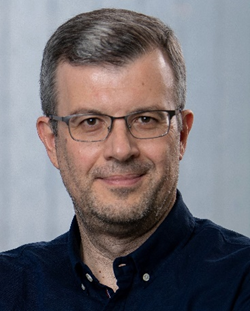
Prof. Vassilios Verykios
Director of the Big Data Analytics and Anonymization Lab
School of Science and Technology, Hellenic Open University
Title: Custodians of Privacy: Protecting Data and Information in the Digital Age
Abstract: This keynote explores the critical balance between maintaining individual privacy and maximizing data utility. It distinguishes between input privacy techniques, such as k-anonymity, l-diversity, and differential privacy, which protect the privacy of individual data entries, and output privacy techniques like frequent itemset hiding and inverse frequent itemset mining, which ensure that the results of data analysis do not disclose sensitive information. Real-world examples and innovative approaches demonstrate how to protect sensitive information while ensuring the data remains useful for analysis, emphasizing the importance of ethical and responsible data handling.
Short CV: Vassilios Verykios is a Professor at the School of Science and Technology at the Hellenic Open University, specializing in “Data Management.” He is included in the top 2% of scientists in the world, based on the Elsevier Publishing Company, and he is listed among the top Greek scientists in the field of Computer Science, according to Research.com.
He graduated in 1992 from the Department of Computer Engineering and Informatics at the University of Patras, and he received his Master’s Degree (1997) and Ph.D. (1999) in Computer Science, from Purdue University, Indiana, USA. From 1999 to 2002, he was an Assistant Professor in the Department of Information Systems at Drexel University, Philadelphia, Pennsylvania, USA, and from 2005 to 2010, he was an Assistant Professor in the Department of Electrical and Computer Engineering at the University of Thessaly. From 2010 to 2016, he was an Associate Professor at the School of Science and Technology at the Hellenic Open University, where he is a faculty member to this day, as a full Professor. Read More

Prof. Maria Virvou
Head of the Department of Informatics
School of Information and Communications Technologies
University of Piraeus, Greece
Title: Balancing Autonomy and Ethics in AI-Εmpowered Software Engineering by Addressing User-Centred Requirements Tension
Abstract: In Artificial Intelligence and AI-Empowered Software Engineering, the clash between AI autonomy and ethical imperatives creates a significant tension in requirements. This keynote investigates this tension, exploring how user-centred approaches can effectively manage it. By focusing on the delicate balance between user needs, ethical integrity, and AI autonomy, we examine real-world scenarios, such as AI-empowered virtual assistants handling sensitive user data, where conflicts arise between personalising user experiences and safeguarding privacy, as well as ensuring user assistance while maintaining human oversight.
Through theoretical frameworks and practical examples, we investigate the complexities of navigating this requirements tension, impacting both the design and functionality of AI-empowered software. The discussion addresses ethical implications of algorithmic decision-making and user experience considerations of autonomous systems. We present strategies for achieving a balanced approach, including transparent decision-making processes, human-AI synergy, and clear ethical guidelines for AI development and user experience design.
This keynote aims to provide a comprehensive analysis of the relationships between autonomy, ethics, and user needs in AI-empowered software engineering. Emphasising a user-centred approach, we outline a path towards responsible, inclusive, and ethically sound AI-driven software practices.
Short CV: Professor- Dr. Maria Virvou is the Head of the Department of Informatics at the University of Piraeus, Greece, Director and Founding Member of the Postgraduate M.Sc.Program in Computer Science, Director of the Research Laboratory “Software Technology”. She is the Co-Editor-in-Chief of the Springer book series “Learning and Analytics in Intelligent Systems” and “Artificial Intelligence-Enhanced Software and Systems Engineering”. She obtained a Ph.D. in Computer Science and Artificial Intelligence from the University of Sussex in the United Kingdom (U.K.), funded by the Greek State Scholarships Foundation specialising in “Artificial Intelligence”. She obtained a Master of Science (M.Sc.) in Computer Science from University College London (UCL), University of London, United Kingdom (U.K.), and her first degree from the Department of Mathematics at the National and Kapodistrian University of Athens, Greece. Read More
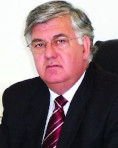
Prof. Peter P. Groumpos
Emeritus Professor, University of Patras, Greece.
Title: Artificial Intelligence Or Cybernetics? Why Not Cybernetic Artificial Intelligence (Cai)
Abstract: In a world where technology is constantly evolving, it can be difficult to keep up with the latest trends. In particular, there are two terms that are often used interchangeably but have very different meanings: artificial intelligence (AI) and Cybernetics. Though they share some similarities, AI and Cybernetics are actually quite different. In this plenary paper this challenging difference is considered and carefully analyzed.
AI is the result of applying computer science techniques to artificially create something that performs tasks that only humans can perform, like reasoning, natural communication, and problem-solving. There are two types of AI: general AI (AGI) and narrow AI (ANI). AGI is where machines have human-like intelligence, while ANI is where machines are good at one specific task. The history of AI started with a dream to build intelligent machines, dating back to the ancient Greeks. A Dartmouth summer conference in 1956 brought the field of AI into existence. In this conference three names were given for the field of “thinking machines” 1) cybernetics 2) automata theory and 3) complex information processes. All three were scientifically developed, analyzed, and defined long before AI as we know it today was officially started in 1956 at Dartmouth College. Of the three names, the one that had been well-known and investigated, at that time, is cybernetics. Artificial Intelligence (AI) is one of the most important and misunderstood sciences of today. Much of this misunderstanding is caused by a failure to recognize its immediate predecessor – Cybernetics. Both AI and Cybernetics are based on binary logic and rely on the same principle for the results they produce. The 1956 Dartmouth Workshop was organized by Marvin Minsky, John McCarthy, and two senior scientists: Claude Shannon and Nathan Rochester of IBM. McCarthy persuaded the attendees to accept “Artificial Intelligence” as the name of the new field. The 1956 Dartmouth conference was the moment that AI gained its name, its mission, its first success, and its major players, and is widely considered the birth of AI. The term “Artificial Intelligence” was chosen by McCarthy to avoid associations with Cybernetics and connections with the influential cyberneticist Norbert Wiener, the father of Cybernetics. Read More
Short CV: Prof. Peter P. Groumpos is an emeritus professor since 2017 at the department of Electrical and Computer Engineering of the University of Patras. He was born in Greece in1950 at the small town of Xylocastron, Corinthia. At the age of 18 years old, he went to USA with the primary goal to do his university studies. He did his undergraduate and graduate studies at the Department of Electrical and Computer Engineering at the SUNYAB. He received his Ph.D. in 1978. He joined as an Assistant Professor, Cleveland State University, Ohio in 1980 and he was promoted to Associate professor in 1985. In 1990, he returned to his motherland Greece, been elected as a full Professor at the Department of Electrical and Computer Engineering of the University of Patras. In 1992 he established the Laboratory for Automation and Robotics to which has been its director till he retired in 2017. A Fulbright Scholar award by the State Department of USA 1986-87. Chairman of the Dept. of Electrical and Computer Engineering, University of Patras (1999-2003). Academic Honorary Member of the Russian Academic Council of Mechatronics and Robotics 2002-2011 and Honorary Invited Professor of the University of Science and Technology of the Eastern China of Shanghai 2013-2017. President & CEO, Patras Science Park, Patras, Greece (2004–2010). The Greek National representative to high positions: a) at European Management Committees (ESPRIT, ICT, IMS, INCO). Included in b) Who’s Who in Frontiers of Science and Technology and Men of Achievement, c) General Chairman of IFAC Conferences, LSS ’98 and MIM 2000, and of the IEEE Conferences, ISIC 2000 and MED 1994, 2000 and 2016 d) Chairman of the TC 9.5 of Large-Scale Systems of IFAC (1996-2001), e) Co-Chairman of the Creativity in Intelligent Technologies and Data Science Conferences, CIT&DS 2017, 2018, 2019 and 2021, Volgograd, Russia. Read More

Prof. Miltos Alamaniotis
Associate Professor
GreenStar Endowed Fellow in Energy
Department of Electrical and Computer Engineering
University of Texas at San Antonio
Title: Preventing a nuclear September 11th: Solutions, Challenges and Concerns in utilizing AI-empowered analysis software in sensors
Abstract: The terrorist attacks of 9/11 led to a redefinition of security architecture and its priorities to prevent such acts. One emerging scenario involves the potential use of nuclear materials for attacks in metropolitan areas, resulting in severe and widespread consequences. Typically, detecting and identifying terrorist activities involve sensors that measure radiation and analyze the data for significant patterns. Recent advancements in Artificial Intelligence across various fields have shown promise in addressing critical challenges in nuclear security. Specifically, AI-empowered software modules embedded in radiation sensors—creating smart sensors—allow for real-time data analysis and decision-making. AI facilitates high-definition, high-speed analysis of diverse data types directly within the sensors, improving the monitoring of nuclear materials’ use, storage, and transport. Additionally, the embedded AI software in sensors eliminates the need for human operators to have expertise in nuclear physics and engineering. This talk will explore the AI solutions in data analytics, as well as challenges, and societal and ethical concerns related to using AI-empowered software in sensors to upgrade security measures and prevent a nuclear 9/11 in metropolitan areas.
Bio: Dr. Miltos Alamaniotis is Associate professor and the GreenStar Endowed Fellow in Energy in the Department of Electrical and Computer Engineering at the University of Texas at San Antonio (UTSA). Before joining UTSA, he worked as a researcher at Purdue University. He received his BS in Electrical and Computer Engineering from the University of Thessaly, 2005, and MS and PhD in Nuclear Engineering with an emphasis in Applied Artificial Intelligence from Purdue University in 2010 and 2012, respectively. His interdisciplinary research focuses on the development of Artificial Intelligence and machine learning approaches applied to intelligent energy systems, nuclear power systems, and nuclear security to detect hidden radioactive materials. He has published over two hundred (200) research papers in scientific journals, books and proceedings of international conferences. He serves as Associate Editor in the International journal on Artificial Intelligence Tools, Internet of Things (Elsevier), and as Program Chair in IEEE International Tools with Artificial Intelligence 2018 and 2020. He had worked as an external researcher at Argonne National Laboratory (Illinois, USA) from 2010 to 2012, as visiting researcher in the Energy and Power Systems group at Oak Ridge National Laboratory (Tennessee, USA) in May 2016, and at the Nevada National Security Laboratory (USA). He is the recipient of the Distinguished Alumnus Award of the Department of Electrical and Computer Engineering. University of Thessaly in July 2017, and the Presidential Award for Distinguished Research Achievements at UTSA in 2022. In 2023, the National Academy of Engineering included him in the “top-notch 100 Early Career Engineers in USA” for the 2023 Frontiers-of-Engineering Symposium.
